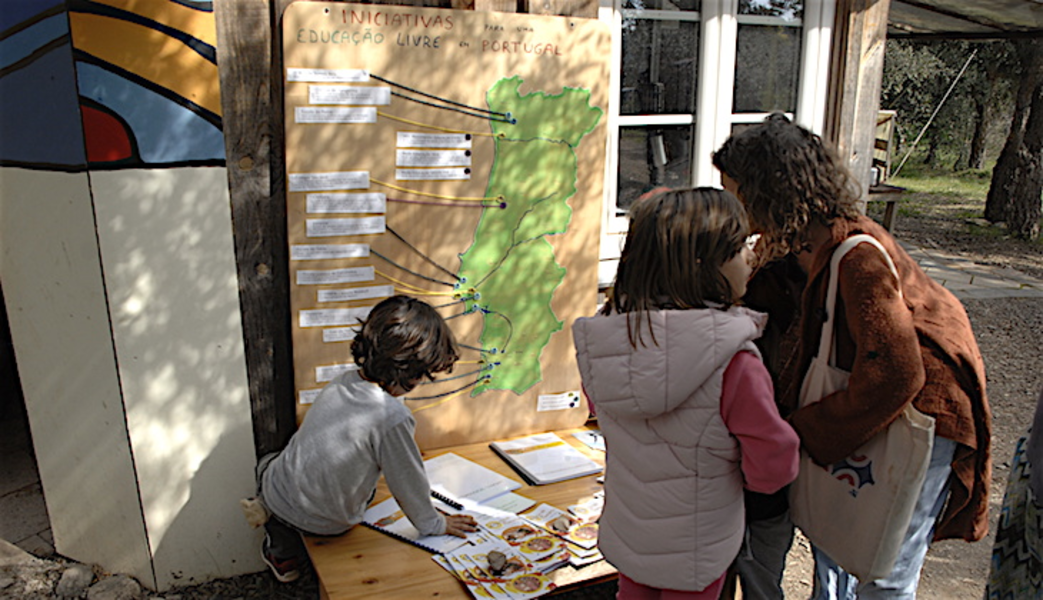NETWORK
The active creation of a diverse network is an essential part of the Escola da Esperança. For us networking means more than simply maintaining contact and communication with other partners; our network is part of the life and learning of our students. We distinguish between two levels in our network: The learning network of students and the pedagogical network of the Escola da Esperança. Both levels operate according to the principle of “cooperation instead of competition”.

The learning network of students is based on the principle: “learning in life – holistic contact with the learning content”.
In this context, the most immediate point in our network is the community of Tamera. The integration of the Escola da Esperança within an innovative and professional work environment (permaculture and sustainable ecology, cooperation with animals, sustainable technologies, international networking, etc.) provides students with varied and continuous learning opportunities. At the same time the children and youth of the school are embedded in an open and stable social system.
The integration of the school into a regional network is very important to us. The opportunities for our students to connect and learn are achieved through cooperation with diverse professionals and institutions in the surroundings of Tamera. Examples include joint theater courses with the public school in the neighboring village, internships in the bakery which supplies bread to Tamera, or traditional crafts with a local artist. These regional activities directly contribute to the cultural, linguistic and social integration of students into the Alentejo region.
In order to get a conscious and holistic view of the current world situation, the Escola da Esperança is integrated into a global network. The cooperation with other international peace projects and the exchange with other reform schools provide platforms for global thinking and open learning systems. On one hand many experienced peace researchers and activists come to Tamera and share their knowledge and expertise. On the other hand the students get to know different cultures, languages, religions, political systems and ways of living through the Escola da Esperança’s “travelling school”. For example, within the context of Tamera’s international education platform, the Global Campus, we are in a continuous exchange with concrete cooperation partners, such as the Favela da Paz in São Paulo, Brazil, the peace village San José de Apartadó in Colombia, with OTEPIC, a permaculture project in Kenya, and various projects in the Middle East.
The pedagogical network of the Escola da Esperança is to be a platform for innovative schools and children’s and youth projects around the world. We want it to inspire a global educational revolution for the future of our children, of mankind and planet Earth. We would like to collaborate with revolutionary schools and children’s projects, teachers and educators and of course with parents. Through cooperation and mutual support we would like to empower an education with new contents, new forms of learning and with ethical foundations for children.
For the development of the Escola da Esperança, we are currently in exchange with various reform schools from Portugal, Switzerland, Germany and Austria (for instance: Escola de Ponte, International School of Aljezur, Harpa, Rede-Educação-Viva, Movimento Educação Livre, Summer Hill School, Schule für Offenes Lernen, Lernwerkstatt, Monterana,…). The educational reformer José Pacheco, currently active in Brazil, and other visionaries also support us.
For the extension of the pedagogical network, we organize a bi-annual international education Symposium in Tamera. The Symposium is offered as a forum for teachers, educators, parents and other interested parties from around the world, to connect and cooperate towards a common global educational revolution.

